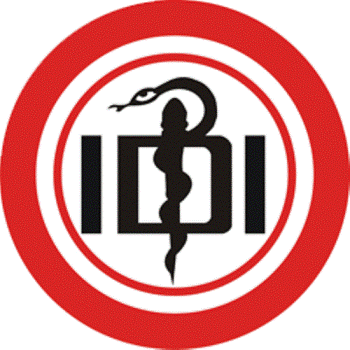Jan 10, 2009
Foods That Improve Your Brain Function
by dr. Shelley Narula/Healthy Living
The right brain nutrients
The brain uses carbohydrates for energy and omega-3 fatty acids for the formation of its cell structure. B vitamins play an essential role in brain function. Clinical observation strongly links folic acid to brain development. In combination with folic acid, vitamins B6 and vitamin B12 help manufacture and release chemicals in the brain known as neurotransmitters. The nervous system relies on these neurotransmitters to communicate messages within the brain, such as those that regulate mood, hunger, and sleep.
In addition, foods rich in antioxidant nutrients, such as vitamin A, C and vitamin E and beta-carotene, help protect brain cells from free-radical damage caused by environmental pollution. They are known as free radical scavengers and defense from free radicals is important to protecting the brain well into the golden years. Studies suggest that taking supplements of vitamins C and E can prevent the risk of Alzheimer's disease and slow the progression of memory loss.
How brain foods help you think sound?
The brain utilizes 20 percent of the body's carbohydrate supply. When the brain receives a steady supply of sugar for fuel, it chugs along smoothly at a steady pace. But when levels of sugar in the blood fluctuate, the brain doesn't get its steady fuel supply. As a result, you may experience mental confusion, dizziness and if severe, convulsions and loss of consciousness. Foods with a low glycemic index provide brain friendly carbohydrates because they do not push the pancreas to secrete excess insulin, so the blood sugar tends to be steadier. Vegetables, legumes, whole grains, fruits and dairy products are foods with best brain sugars.
Sugars with high glycemic index can adversely affect the thinking and actions of some children. The sugars at fault include glucose, dextrose, and sucrose, and the highly refined, highly processed junk sugars found in candy, icings, syrups, packaged baked goods, and table sugar. The roller-coaster affects produced by these sugars affect moods and concentration in some children and adults, leading to sugar highs and sugar blues.
Proteins in the diet affect brain performance because they provide the amino acids from which neurotransmitters are made. The two important amino acids, tryptophan and tyrosine, are precursors of neurotransmitter. Fats are major components of the brain cell membrane and the myelin sheath around each nerve. So, our diet must include adequate amount of fat and the right kinds of fat can greatly affect brain development and performance.
Minerals are also critical to mental functioning and performance. Magnesium and manganese are needed for brain energy. Zinc is essential in protecting your mind and brain from the aging symptoms of forgetfulness. Sodium, potassium and calcium are important in the thinking process and facilitate the transmission of messages. Iron is also required to carry oxygen to the brain cells and aids in the formation of brain neurotransmitters, which affect attention and learning capacities.
List of foods that improve your brain function
Nuts
Nuts contain protein, high amounts of fiber, and they are rich in beneficial fats. They also contain plenty of vitamin B, E, and magnesium which are essential to cognitive function. They can clear up that brain fog and enable you to think clearer and are positive mood enhancers. Filberts, hazelnuts, cashews, and walnuts are great choices, with almonds being the king of nuts.
For those avoiding carbohydrates, macadamia nuts are much higher in fat than most nuts. Peanuts are not a good choice as many people are allergic to peanuts and have less healthy fat than many other types of nuts.
Seeds
Try seeds like sunflower seeds, sesame seeds, flax seeds, and tahini (a tangy, nutty sesame butter that tastes great in replacement of mayo and salad dressing). Seeds contain a lot of protein, beneficial fat, and vitamin E, as well as stress-fighting antioxidants and important brain-boosting minerals like magnesium.
They boost your mood and brainpower. Sunflower seeds contain tryptophan, an important amino acid that the brain converts to serotonin, which is a natural way to relieve mild depression and insomnia. Additionally, sunflower seeds are high in thiamine, an important B vitamin, which increases memory and cognitive function.
Eggs
Eggs are a precious source of high-quality proteins and rich in vitamins and minerals. The selenium in organic eggs is proven to help your mood. Nutrient called choline, found in eggs, can help boost the memory center in the brain. Choline increases the size of neurons, which helps them fire electrical signals more strongly and rebound faster between firings.
Two antioxidants found in egg yolk called lutein and zeaxanthin help prevent the risk of age-related cataracts and macular degeneration, two of the most prevalent age-related eye conditions.

Avocado
For brain health, avocados are nearly as good as blueberries. Avocados contain mono-unsaturated fats, which contribute to healthy blood flow, the main requirement for a healthy brain. To include avocados to your diet, add 1/4 to 1/2 of an avocado to one meal daily as a side dish. Start each day with a mix of high-quality protein and beneficial fats to build the foundation for an energized day. Avocado with scrambled eggs are a great combination that serve the above purpose.
Berries
Berries contain antioxidants that help boost cognition, coordination, and memory. Blueberries are high in fiber and low on the glycemic index, thus they are safe for diabetics and they do not spike blood sugar. Blueberries are possibly the best brain food on earth as they boost the potency of neuron signals. They are also known as the "brain berry", and are considered a super food when eaten in their natural form. They are also known to protect the brain from oxidative stress and may reduce the effects of age-related conditions such as Alzheimer’s disease and dementia.
Antioxidant-rich strawberries can prevent age-related neurological declines by improving brain cell abilities to send and receive the ’signaling’ molecules. The brain uses these signaling molecules to communicate. Blackberries are rich in nutrients called anthocyanins that help protect our brain from oxidation stress, which in turn fights degenerative brain diseases.
Pomegranate
Pomegranates contain blueberry-like levels of antioxidants, offering brain and memory protection. It carries a lot of vitamin C, A and E as well as fiber, iron and potassium and anti-inflammatory attributes help in strengthening the immune system.
Coffee
Coffee is good for your brain. You can safely enjoy 2 cups daily. Coffee is rich in antioxidants, amino acids, vitamins and minerals. Recent findings show it to be one of the best brain foods, reducing the risks of mental decline including diseases like dementia and Alzheimer's.
Green tea
Green tea enhances memory and focus and fights mental fatigue. It contains catechines, which help you relax mentally and maintain your focus as well.
Green tea also helps maintain positive mood states and fights against many brain disorders. Polyphenols are powerful antioxidants found in green tea that can boost the availability of the important signaling brain substance dopamine in brain circuits.
Brown rice
Whole grains like brown rice are essential for maintaining concentration throughout the day and improving memory. That's because they contain the perfect mix of carbohydrates and fiber to fuel your brain while keeping you full. The low-glycemic complex carbohydrate present in brown rice is excellent for people sensitive to gluten who still want to maintain cardiovascular health. Wholegrain breads and cereals are also rich in folate and Vitamin B6, an important brain vitamin.
Chocolate
Dark chocolate has brain boosting compounds; it’s rich in antioxidants and contains several natural stimulants which increase the production of endorphins while enhancing focus and concentration. It also releases dopamine, to enhance cognition and mood. It is also rich in fiber. It has high content of flavanol epicatechin that facilitate blood supply to the brain and enhance cognitive skills.
Milk chocolate jump starts impulse control and reaction time. It has also been known to improve visual and verbal memory.

Garlic
Garlic is one of the most potent nutritious foods. It is fabulous for reducing bad cholesterol and strengthening your cardiovascular system, and it exerts a protective antioxidant effect on the brain. It can potentially help against stroke, dementia and Alzheimer’s disease.
Green leafy vegetables
Spinach, kale, chard, romaine, arugula, lolla rossa and other green vegetables should be consumed on a daily basis. These vegetables are high in iron (slightly less "green" iron sources include beef, pork and lamb). Folate and vitamin B6, found in broccoli and kale, help convert tryptophan into serotonin, a brain chemical that boots mood alertness.
Tomatoes
Tomatoes are fantastic brain foods as there high content of lycopene make them an ideal source of unique of antioxidants. Lycopene is particularly good for brain - helps protect against free-radical damage to cells, which prevents brain from ageing and is believed to be a primary factor in cases of dementia, and particularly, Alzheimer’s disease.
Broccoli
Broccoli is a super food with high overall nutrient content. High levels of chemicals called homocysteines are linked with cognitive decline and Alzheimer's disease. In order to break themselves down, homocysteines require folate and B12 or B6, vitamins found in vegetables like broccoli. It is a great source ofvitamin K, which enhances cognitive function and improves brainpower.
Wholegrain foods
Vitamins B6, B12 and folic acid are essential in protecting your memory. Wholegrain foods, such as whole grain breads and wheat germ are part of the best brain foods. Whole grain breads, cereals, barley, popcorn boost blood flow to the brain.
Wild salmon
Higher levels of omega-3 fatty acids in the blood go hand in hand with higher levels of serotonin, a mood-enhancing brain chemical. Thus, these fatty acids are responsible for improved cognition and alertness, reduced risk of degenerative mental disease (such as dementia), improved memory, improved mood, and reduced depression, anxiety and hyperactivity. Wild salmon is a premium source of these beneficial fats. Salmon is also rich in protein, calcium and vitamins A, D and B group.
Tuna
In addition to being another rich source of DHA (docosahexanoic acid), a type of omega-3s; tuna, particularly yellow fin, has the highest level of vitamin B6 of any food. Generally, the B vitamins are among the most important for balancing your mood. B6 in particular influences dopamine receptors, the "feel good" hormones along with serotonin.

Olive oil
A diet rich in healthy fats is essential to clear thinking, good memory, and a balanced mood. Olive oil is rich in antioxidants for healthy brain function. The extra virgin organic variety is best because the oil is produced naturally without chemical treatment. Raw unprocessed organic olive oil also contains fibers, and proteins.
Avoid processed fats as eating the wrong fat can literally alter your brain’s communication pathways.
Things that drain your brain
There are some foods that will cause a brain drain and work against your efforts.
It is advised to stay away from foods with high-fructose corn syrup; sugary drinks, colas, and juices; refined white sugars; items with trans fats and partially-hydrogenated oils, and other processed foods. Alcohol and nicotine are also known to cause reduced brain function.
A high carbohydrate meal
A high carbohydrate lunch makes you feel sleepy and sluggish. It is advised to opt for a light meal with some quality protein, such as a salad with grilled chicken breast or vegetables and hummus or wild American shrimp and avocado.
Corn syrup and sugar
They lead to health problems like diabetes and obesity, and are terrible for your brain. Don’t eat sugar except on special occasions or as an infrequent treat. Sugary fruit drinks, colas, and juices are among the worst offenders.
Nicotine
It constricts blood flow to the brain, so while it may soothe jittery nerves, smoking can actually reduce your brain function severely and the effects are cumulative.
Alcohol
Alcohol interferes with dopamine production. Moderate amounts of alcohol, particularly resveratrol-rich red wine, can help improve your health, but any alcoholic drink beyond a glass or two of wine daily is a recipe for reduced brain function and energy loss.
Important notification about information and brand names used in this article!
Links
Comments
The following content represents the opinions of SteadyHealth.com users. It is not editorially reviewed for medical or factual accuracy. It does not constitute medical advice. See your doctor for medical advice.
Posted 29/01/10 - 04:55 by Guest
I've read several articles, they didn't mention sugar as brain-drainer but as memory enhancer/sharpener.
what should i believe?
--
what should i believe?
--
Posted 2/01/10 - 03:27 by Guest
Really quality article. I learned a great deal. This is the food my wife has been eating for years and the kinds of things I want to eat more of. Thank you for posting!
... see all comments ...Posted 14/01/09 - 08:53 by Guest
I am sure to take this post serious, but eating junk food high in sugars and bad brain stuff has me feeling a bit lazy. Is there an easy way to take up all of the listed items and throw them into a spreadsheet format of some sort? Can we possibly come up with a monthly shopping list and cooking list complete with ingredients and cooking times for a fool proof plan to healthy eating? =0)
Maybe I am just looking for a reason to mope around this whole eating healthy life style. I am sure of one thing, I am very thankful for the time and energy invested in making this list.
I will bookmark it in good faith and maybe one day Stumble Upon it again one day.....which reminds me, I gave you a thumbs up!
Maybe I am just looking for a reason to mope around this whole eating healthy life style. I am sure of one thing, I am very thankful for the time and energy invested in making this list.
I will bookmark it in good faith and maybe one day Stumble Upon it again one day.....which reminds me, I gave you a thumbs up!
Posted 11/01/09 - 13:57 by VzaV
Good post. It's hard to find them, not to mention discipline one's self to eat right. Knowing a succinct list on good choices really helps. Asking what motivates one's self to make good choices can be enlightening. Preventing or correcting illness? Feeling better? Improving cognition? Remaining youthful?
It's never too early or too late to improve.
It's never too early or too late to improve.
COMMENTS
Readers posted 9 comments for this article
24.jpg)






















No comments:
Post a Comment